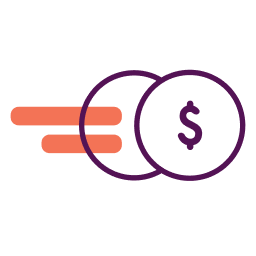If you’re tired of leasing and are looking for a real estate loan for your business, don’t overlook how SBA commercial real estate loans can help you achieve your goals.
Can You Buy Real Estate with an SBA Loan?
Yes, you can use certain SBA loans to purchase or refinance real estate, if you qualify. However, there are various requirements borrowers must meet, including owner occupancy requirements, that make these loans appropriate for some businesses and not others. The two SBA loan options used most often for real estate are SBA CDC/504 Loans and SBA 7a Loans.
Here’s what you need to know about each option and how to determine if an SBA real estate loan is right for you.
SBA CDC 504 Loans for Real Estate
SBA 504 Loans are designed to help small business owners finance the purchase of commercial real estate and machinery or equipment. The loan program is a partnership between a lender and a certified development company (CDC). They are popular because they offer a low down payment compared to most commercial loans, fixed interest rates for the CDC portion of the loan and overall favorable terms.
CDCs are nonprofit corporations that promote economic development in their communities through the loan program provided by the U.S. Small Business Administration (SBA). You can find a local CDC through the SBA’s website. The loan is typically structured as follows:
- 50% of the total project cost is financed through a private business lender
- 40% of the total project cost is financed by the CDC and is guaranteed by the SBA
- 10% of the total project cost is contributed by the small business
Depending on the circumstances, the small business may be required to provide up to 20% of the project costs and get only 80% in financing through the SBA 504 Loan program. You can use the funds from an SBA 504 Loan for certain fixed assets (including some soft costs which aren’t considered direct construction costs). More specifically:
- The purchase of existing buildings
- The purchase of land and land improvements, including grading, street improvements, utilities, parking lots and landscaping
- The construction of new facilities or modernizing, renovating or converting existing facilities
- The purchase of long-term machinery
- The refinancing of debt in connection with an expansion of the business through new or renovated facilities or equipment
There’s no maximum on the size of your project, but the SBA-guaranteed loan from the CDC maxes out at $5 million for most businesses. Repayment terms on an SBA 504 Loan include 10, 20 and 20 years terms. The interest rate for the CDC portion of the loan will be a fixed low rate while the interest rate on the loan from the private lender will be fixed or variable, and may depend on borrower qualifications. However, since the private lender is only lending. a portion of the loan, risk is lower and rates will be competitive as a result.
How to Qualify for a 504 SBA Loan for Commercial Real Estate
To qualify for an SBA 504 Loan, you’ll need to meet the eligibility criteria set by the lender, the SBA and the CDC, which may include but isn’t limited to:
- Your business qualifies as a small business under SBA size standards.
- You run a for-profit company, which is an eligible business type — examples of ineligible businesses include real estate investment firms, casinos, pyramid sales companies and more
- Your business operates in the U.S.
- You can provide evidence of your ability to repay the debt based on projected operating cash flow
You’ll also need to provide all of the documentation required by the lender, SBA and CDC. Find out what’s required before you apply so you can accelerate the underwriting process.
The SBA 7(a) Loan for Real Estate
Unlike the SBA 504 Loan, the SBA 7(a) loan offers more flexibility with how you can use your funds, but it does include real estate purchases. With a standard SBA 7a Loan, you can borrow up to $5 million through a private lender. The SBA will guarantee a portion of the loan, which makes the loan somewhat less risky to a lender.
Down payment requirements start at 10% with SBA 7a loans, but it’s not uncommon for lenders may require more than that. Repayment terms go up to 25 years for real estate financing. For real estate-specific loans, a 25-year term applies only to the acquisition and improvement of land and buildings or the refinancing of debt incurred in their acquisition.
However, SBA 7a Loans can also be used to:
- Expand, acquire or start a business
- Refinance existing business debt not related to real estate
- Buy equipment
- Provide working capital
- Construct leasehold improvements
- Purchase inventory
Interest rates can vary based on the lender and your creditworthiness. Learn about current SBA loan rates here. The SBA also sets a maximum rate based on the current prime rate. You can also expect to pay a guaranty fee as high as 3.75% of the guaranteed portion of the loan. (See additional information about fees below.)
How to Qualify for a 7(a) SBA Loan for Commercial Real Estate
To qualify for an SBA 7a Loan, you’ll need to meet the lender’s credit requirements, plus the following criteria from the SBA:
- Meet the SBA size standards as a small business (varies by industry)
- You’re engaged in or propose to do business in the U.S. or its territories
- You don’t qualify for similar credit elsewhere
Your business cannot operate in an ineligible industry, which includes real estate investment companies, firms involved in speculative activities, dealers of rare coins, pyramid sales plans and more.
There is no minimum credit score required by the SBA for most 7(a) loans or 504 loans, though acceptable credit is required. The lender may have its own credit score requirement.
It’s worth noting that when one of these two loans is used by a small business to acquire or renovate a property, it must be at least 51% owner-occupied. For new construction, the business must occupy at least 60% and work up to 80% occupancy over ten years. For that reason, these loans aren’t ideal for businesses that will primarily rent out the property to others for a profit. In that case, a commercial real estate loan will likely be a better choice,
How Long Does it Take to Get an SBA Commercial Real Estate Loan?
You should expect an SBA 504 loan or 7(a) loan to take at least 2—3 months from the time you submit your loan application. Applications for financing for new construction may take even longer. These are not among the fastest business financing options out there, but the excellent loan terms can make it worth your time and effort.
What is the Difference Between an SBA 504 and 7(a) Loan?
Here’s a quick summary of the major differences between the two loan programs for real estate-related financing:
| SBA 504 Loan | SBA 7a Loan | |
|---|---|---|
| Loan amount | Up to $5 million (CDC loan portion only, no maximum project size) | Up to $5 million |
| Interest rates | Fixed (CDC loan portion), private lender portion fixed or variable | Fixed or variable (variable more common) |
| Repayment terms | 10, 20 or 25 years | Up to 25 years |
| Down payment requirement | 10% or more | 10-15% or more |
| Fees | Typically slightly more than 1% of loan amount, rolled into loan | Typically 2.75% of loan amount, paid out of pocket |
When the SBA 504 Loan is Better
The maximum loan amount on an SBA 7(a) loan is the same as the maximum guaranteed portion on an SBA 504 Loan. Remember, though, that makes up just 40% of the project costs, which means that you can fund up to $12.5 million with the help of a lender and a 10% contribution from your business. You could go even higher if you put more money down.
As a result, the SBA 504 Loan is a better option if your financing needs align with the program, and you need more money than an SBA 7a Loan can provide.
In addition, a low fixed rate on the CDC portion of the loan can be appealing, especially in an environment of rising interest rates. 504 CDC loans are also popular for refinancing 7(a) loans, and cash out may be is available.
When the SBA 7(a) Loan is Better
You may want to consider an SBA 7a Loan if your financing needs are a little more general than what the SBA 504 loan program allows. Carefully consider how all of your expenses would be categorized to make sure a general-purpose loan is a better fit, though, because the SBA 7(a) loan will be more expensive.
What Fees Are Involved with SBA Commercial Real Estate Loans?
Fees for 504 loans, including the funding fee, underwriting fee and attorney’s fee, can be rolled into the loan and will total a little more than 1% of the loan amount. That includes the SBA guarantee fee of .5% on the CDC portion of the loan. There may also be additional fees, such as appraisals or environmental impact fees, or miscellaneous fees such as UCC filings or credit reports, required.
The fees for 7(a) loans may include loan packaging fees, collateral appraisals and environmental investigation reports and miscellaneous fees such as UCC filings or recording fees, photocopying, delivery charges etc. Legal fees may be charged within reason. There is also an upfront guaranty fee on the guaranteed portion of the loan between $350,001 and above. It ranges from 2.77% to 3.75%. Fees are often paid out of pocket.
The Bottom Line
If you’re looking to make a real estate or machinery-related purchase or improvements to an existing property, or you want to refinance existing debt from such purchases for your business, SBA real estate loans may be your best options. They typically charge lower interest rates than commercial real estate loans not guaranteed by the SBA, and require lower down payments. Before you apply, however, make sure you meet the eligibility requirements for SBA loans, so you don’t end up wasting your time waiting to get denied.
This article was originally written on November 18, 2019 and updated on April 4, 2022.


The 504 loan also has a 25-year option too, fyi.